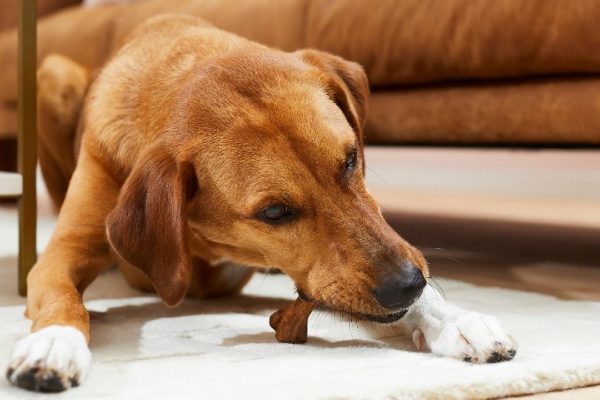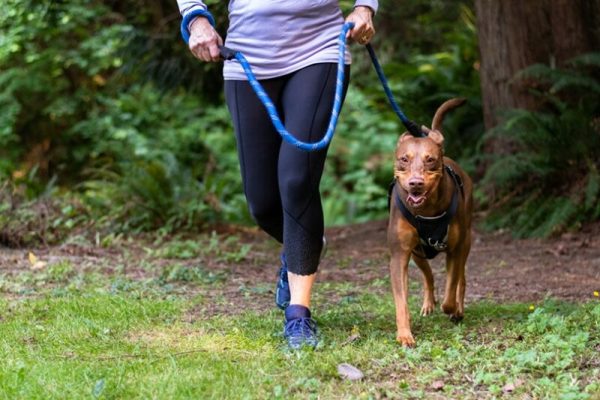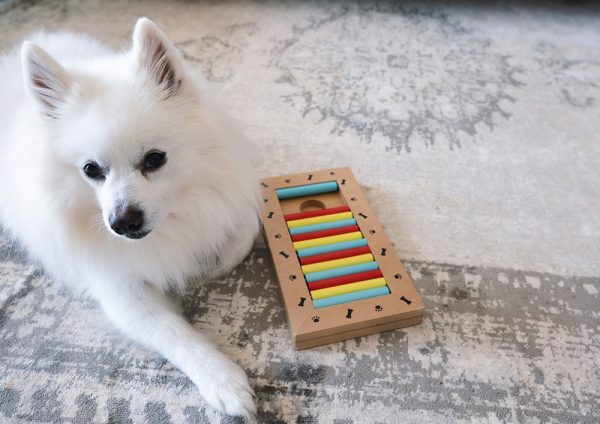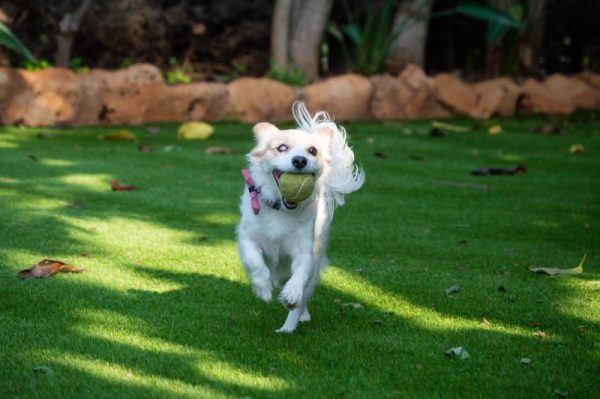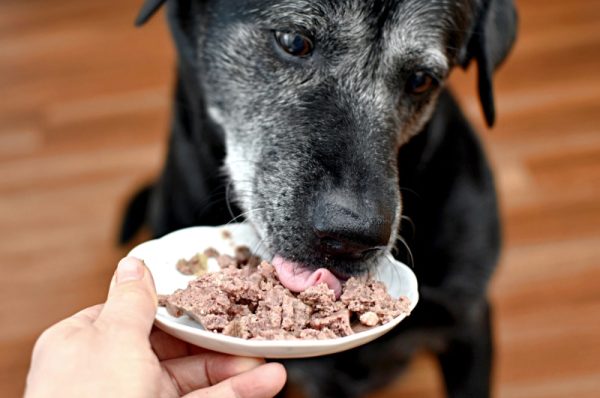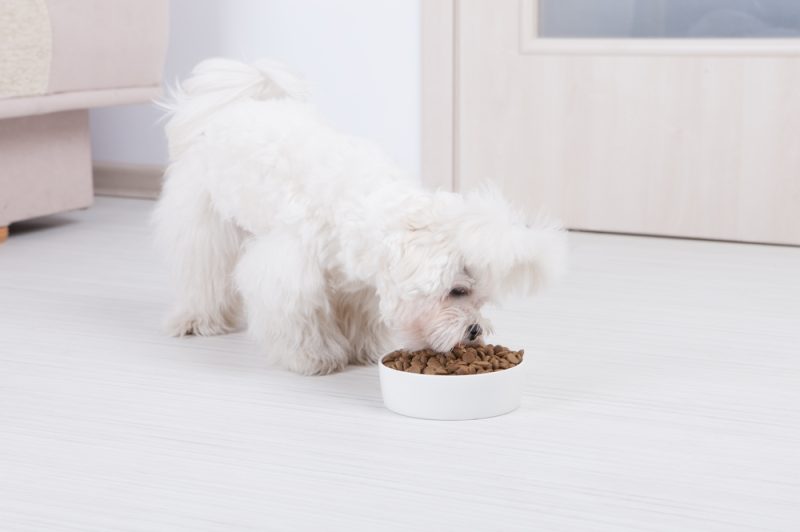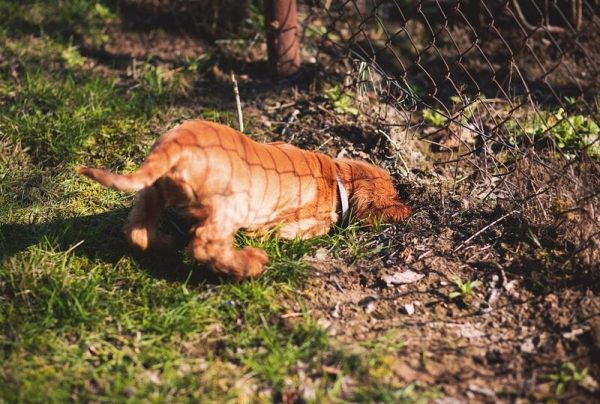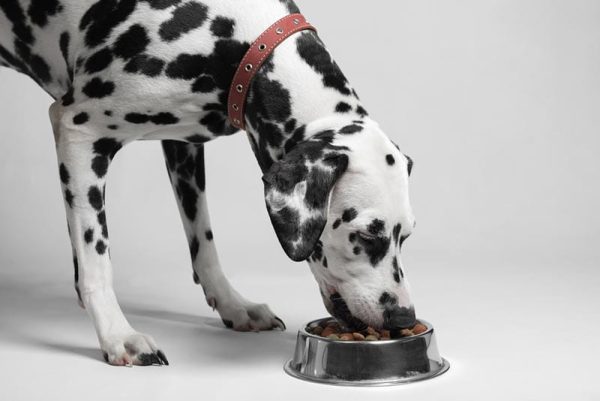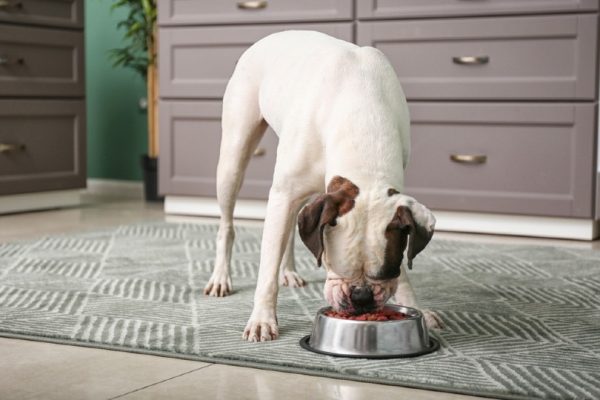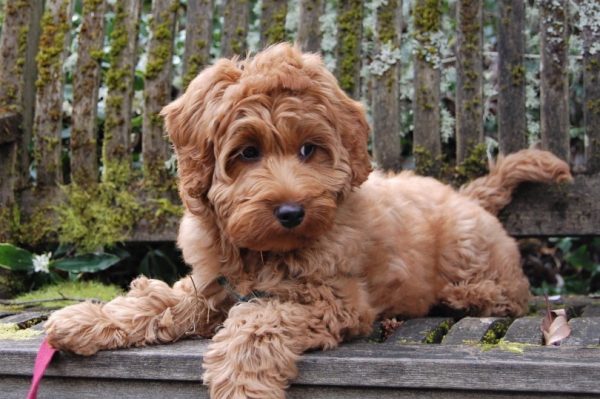In this article
View 8 More +Doodles are taking over the world! There are so many different kinds of Doodle dogs these days, with an Aussiedoodle being one of the most popular of all, and one of the originals! Because this is a hybrid dog, they take on traits from both parent breeds, resulting in a canine all their own.
In this article, we’re going to explore the wonderful aspects of owning an Aussiedoodle, and some considerations to think about to know if they’ll acclimate into your lifestyle.
Breed Overview
Height:
18–22 inches
Weight:
20–65 pounds
Lifespan:
12–16 years
Colors:
Red, blue merle, red merle, black tricolor, black, phantom, sable, chocolate, brindle, silver, cream
Suitable for:
Active families, allergy sufferers
Temperament:
Loyal & loving, intelligent, easy to train, friendly, gets along with other pets
The Aussiedoodle takes on the attributes of the Poodle and Australian Shepherd parent. These dogs can be miniature to standard in size as both Australian Shepherds and Poodles have different size variants in the breed.
In this article, we’re going to get a firmer understanding of the personality, physical characteristics, health, and care for an Aussiedoodle.
Aussiedoodle Characteristics

Aussiedoodle Puppies

When you bring home an Aussiedoodle puppy, you can expect high energy and free entertainment. These pups will certainly keep you on your toes, running around and getting into virtually everything!
Because they are so frisky, you might have a hard time at first trying to calm them down, but they should acclimate very well over time. These spunky little pups will require lots of chew toys, squeakers, and interactive forms of entertainment.
When you are deciding where to get your Aussiedoodle puppy, you can check out local breeders. Remember that this is a hybrid breed with no standard regulations in the AKC or other kennel clubs, so finding someone authentic might be challenging.
Try to steer clear of backyard breeding, puppy mills, and other potentially sketchy situations. Even though you might feel really sorry for these poor little pups, buying from awful breeders will only feed the monster. Try to resist and definitely pay attention to the signs.
Reputable breeders will:
- Provide all vet records
- Have properly tested parents before breeding
- Have a long history of successful litters
- Have raving reviews from buyers
- Have parents on-site
- Never deny a potential owner information
- Take time to answer questions
- Educate buyers on the breed
Getting a puppy is really important for any owner. However, just as many folks are willing to give a dog a second chance at life. Because Aussiedoodles are unregulated, it is very common to find them in rescues and shelters across the country.
The demand for them is high, and so are the surrender rates. Because of this, you can easily find a compatible pup to adopt. At shelters, you don’t have to worry about immediate vetting, spaying or neutering—it’s already done for you!
Aussiedoodle Origin & History
The Aussiedoodle is a newer breed of dog that came on the scene in the late 19th century. These dogs were mixed between the intelligent, hypoallergenic Poodle and the highly trainable Australian Shepherd. Originally, it was meant to be a hunting dog that was more suitable for people with pet allergies.
However, over the course of time the Aussiedoodle has been around, they have made their way into houses as companion animals.


Temperament & Intelligence of the Aussiedoodle
The Aussiedoodle will be incredibly smart. The Australian Shepherd and Poodle both rank in the top 10 for the smartest dog breeds. They are highly trainable, exceptionally focused, and capable of retaining a broad variety of tasks.
Each of the parent breeds were used for different purposes, but ultimately high intelligence is a hallmark of both breeds. Because of the high intelligence, this can sometimes cause hyperactivity if the dog isn’t properly exercised.
It is very important to understand that these dogs will need to be stimulated mentally and physically on a daily basis to prevent unwanted behaviors from developing. If this breed is home alone a lot or locked in a cage for an extended period of time, they can develop several behavioral issues, including destructiveness, separation anxiety, and even aggression.
It is important to have the time to dedicate to this breed before you make that commitment. If you enjoy challenges and love the training process, an Aussiedoodle can be a very rewarding breed.
These dogs will dazzle you every day with our capabilities, and they will accompany you on all of your adventures. You might find that one or another seem a little headstrong or have certain personality quirks that are difficult to manage.
Because of their intriguing personalities and special considerations, they are not really a terrific choice for novice owners.

Are These Dogs Good for Families? 👪
Aussiedoodles can be very good additions to many different kinds of families. Whether you are a single person looking for a hiking partner or part of a growing and developing family, an Aussiedoodle can acclimate into your lifestyle.
These dogs tend to have very exuberant energy and make fantastic playmates for children. Naturally, children should be raised alongside the Aussiedoodle and proper respect should be implemented in the relationship.
If you have enough time to spend with your Aussiedoodle and they won’t be in a cage all day, you can absolutely have one as a single owner. This dog would thrive both in the company of multiple different people in the household or just a single person, permitting they get the right stimulation.
Because of their high energy level, these dogs typically don’t work very well in smaller living spaces, like apartments or studios. Because of the Aussiedoodle’s unique intelligence, these stories work best for experienced owners who have a full understanding of basic canine training.
Does This Breed Get Along with Other Pets?
Most Aussiedoodles not only love but they prefer having another canine counterpart around. So, if you were thinking of getting this breed for an existing dog, they would make a wonderful playmate!
Because an Australian Shepherd is built for hunting, you can imagine they love to chase! So, if you have cats or smaller farm animals, your Aussiedoodle could very well be the holy terror in their lives. So, always keep a close eye out.
An Aussiedoodle really isn’t a good match for smaller pets, but can work very well with your cat, permitting they are raised together. You will have to teach boundaries very early, but this can also be a successful relationship.

Things to Know When Owning a Aussiedoodle
Food & Diet Requirements 🦴
Your Aussiedoodle will have quite a high metabolism. No matter the size, they will need high-quality dog food to replenish their calories. While wet, canned food and dry kibble are still viable options, many pet parents are leaning towards fresh or raw food selections.
Some are even getting creative in the kitchen and coming up with their very recipes at home. If you choose to feed your dog homemade or raw dog foods, make sure to check with your vet to ensure safety.
Fresh foods are becoming an increasingly popular option. Most companies offer these foods on a subscription-based service, so you can have a recurring shipment on a timed schedule.

Exercise 🐕
An Aussiedoodle will require a significant amount of exercise. These dogs need at least one hour—if not more—per day. They will enjoy many different activities and will gladly come along for any car adventure.
These dogs tend to be very energetic and boisterous, always down for an adventure. They will require walks and other forms of exercise, such as puzzle games, interactive learning, extensive training, agility, and so on! These dogs also make skilled service dogs.
Training 🎾
The Aussiedoodle is an excellent candidate for training. They are capable of learning both basic and advanced concepts and several different areas. This breed is known for being a little headstrong and hard to keep focused.
If you have a good motivational distraction, you can get their attention and keep them on task. Because of their high energy and difficulty training, they make the best pets for experienced owners who have dealt with similar breeds before.
Grooming ✂️
When you have an Aussiedoodle, it’s quite obvious that the one thing you’re gonna have to keep up with is hair trims. You can choose from a broad selection of different hairstyles, choosing to do them yourself or opt for a professional.
If the Aussiedoodle takes after the Australian Shepherd side, these dogs will shed profusely and require daily brushing and overall maintenance. If they take more after the Poodle parent, they might shed much less, but they will still require daily brushing to prevent mats and tangles.

Health and Conditions 🏥
When it comes to health, it can be a gamble. Often, since hybrid breeding isn’t well regulated or held to strict standards, they sometimes fall through the cracks. Breeders may not properly vet test before breeding or fail to get the puppies up to date on shots.
So, genetically speaking, you may run into more health issues than true AKC dogs. Many hybrids aren’t tested the same way. But some people argue that hybrid breeds can actually be healthier, since they don’t have a double-dose of breed-specific genes that can cause health conditions. In any case, vetting is key! Getting your pup acclimated to their vet early on is a must! Ideally, you should have a vet picked out before you even bring your puppy home.
- Sebaceous adenitis
- Cataracts
- Hip dysplasia
- Autoimmune thyroiditis
- Anxiety

Male vs Female
Male and female comparisons can be a bit tricky with the Aussiedoodle. After all, the size differences will vary based on parental genetics—not set in stone for every litter. So, some males might be bigger than females in one litter and vice versa.
Personality is very individual to the dog and has no reaction to the sex of the dog. However, males and females act differently when they reach sexual maturity. Females will go through heat cycles and males will harness their hormones.

3 Little-Known Facts About the Aussiedoodle
1. Aussiedoodles come in three sizes.
Australian Shepherds and Poodles can come in different sizes. You can enjoy the Aussiedoodle look in toy, miniature, and standard.
2. Aussiedoodles may be heterochromatic.
Thanks to the influence of the Aussie parent, a pup might be heterochromatic. This means they have two different colored eyes, usually one blue eye, and one other color such as brown.
3. Aussiedoodles can have straight, wavy, or curly hair.
Coat texture is no guarantee. An Aussiedoodle might have curls or lack thereof. Usually, it’s visible at 8 weeks when you bring a pup home, but coats can change slightly over their first year. They are often touted as hypoallergenic, but not all pups have this quality, and no dog is truly 100% hypoallergenic.


Final Thoughts
Now you know more about the very popular and adorable Aussiedoodle. You can see why this particular pick is so sought after, as they are athletic, beautiful, and charming! They can make a perfect addition to active lifestyles.
Remember, because they are a hybrid, breed standards can get muddy. Use your feelers and steer clear of issues related to backyard breeding or puppy mills.
Featured Image Credit: SamuelHache, Shutterstock






